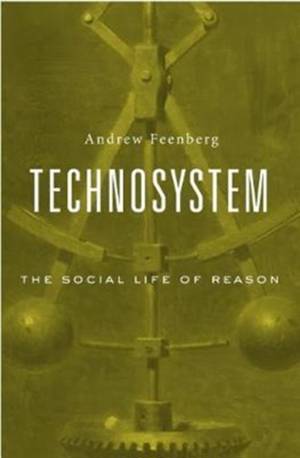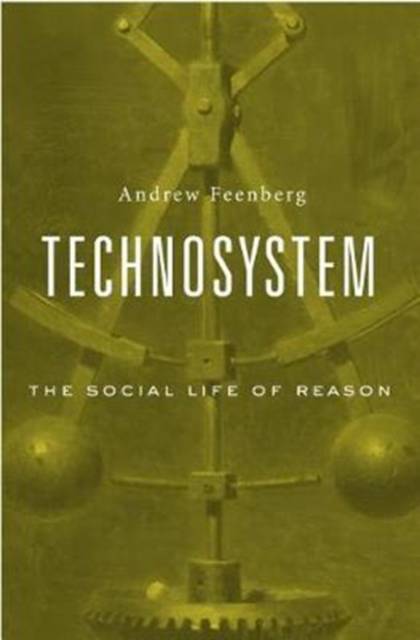
- Retrait gratuit dans votre magasin Club
- 7.000.000 titres dans notre catalogue
- Payer en toute sécurité
- Toujours un magasin près de chez vous
- Retrait gratuit dans votre magasin Club
- 7.000.0000 titres dans notre catalogue
- Payer en toute sécurité
- Toujours un magasin près de chez vous
Description
We live in a world of technical systems designed in accordance with technical disciplines and operated by personnel trained in those disciplines. This is a unique form of social organization that largely determines our way of life, but the actions of individuals and social protest still play a role in developing and purposing these rational systems. In Technosystem, Andrew Feenberg builds a theory of both the threats of technocratic modernity and the potential for democratic change.
Feenberg draws on the tradition of radical social criticism represented by Herbert Marcuse and the Frankfurt School, which recognized the social effects of instrumental rationality but did not advance a convincing alternative to the new forms of domination imposed by rational systems. That is where the fine-grained analyses of Science, Technology, and Society (STS) studies can contribute. Feenberg uses these approaches to reconcile the claims of rationality with the agency of a public increasingly mobilized to intervene in technically based decisions. The resulting social theory recognizes emerging forms of resistance, such as protests and hacking, as essential expressions of public life in the "rational society."
Combining the most salient insights from critical theory with the empirical findings of STS, Technosystem advances the philosophical debate over the nature and practice of reason in modern society.
Spécifications
Parties prenantes
- Auteur(s) :
- Editeur:
Contenu
- Nombre de pages :
- 256
- Langue:
- Anglais
Caractéristiques
- EAN:
- 9780674971783
- Date de parution :
- 02-10-17
- Format:
- Livre relié
- Format numérique:
- Genaaid
- Dimensions :
- 163 mm x 234 mm
- Poids :
- 498 g

Les avis
Nous publions uniquement les avis qui respectent les conditions requises. Consultez nos conditions pour les avis.






